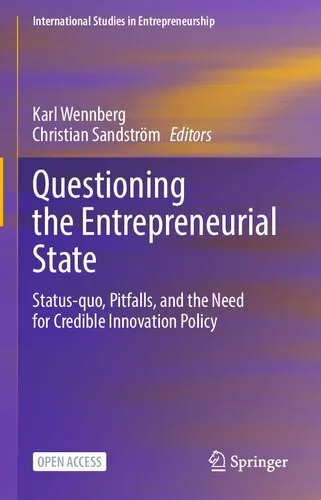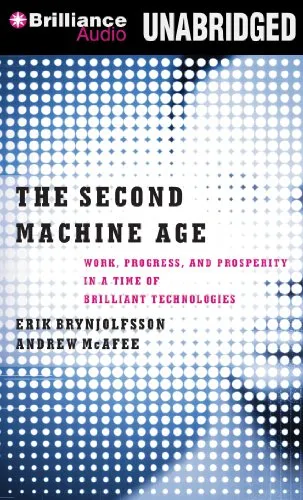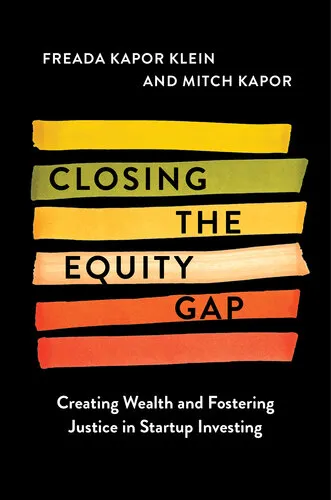Questioning the Entrepreneurial State: Status-quo, Pitfalls, and the Need for Credible Innovation Policy
4.3
Reviews from our users

You Can Ask your questions from this book's AI after Login
Each download or ask from book AI costs 2 points. To earn more free points, please visit the Points Guide Page and complete some valuable actions.Related Refrences:
Welcome to an insightful exploration of innovation policy and the role of the state in entrepreneurship through Questioning the Entrepreneurial State: Status-quo, Pitfalls, and the Need for Credible Innovation Policy. This book, authored by Karl Wennberg and Christian Sandström, challenges established narratives and offers new perspectives on the interaction between government and innovation.
Detailed Summary of the Book
In this book, Wennberg and Sandström delve into the widely debated concept of the Entrepreneurial State, a theory that emphasizes the crucial role of government in fostering innovation and economic growth. They critically assess the assumption that governments are the primary drivers of innovation by exploring various historical, economic, and political contexts. The authors argue that while states can indeed play a key role, the assumption that they are solely responsible is overly simplistic and potentially harmful.
The book further examines case studies from different industries and regions, highlighting instances where state intervention succeeded and where it faltered. Through rigorous analysis, Wennberg and Sandström aim to shed light on the complexities and nuances that accompany state-driven innovation. They emphasize the need for policies that are adaptable and considerate of market dynamics rather than rigid top-down approaches.
Key Takeaways
- State intervention in innovation should be carefully designed to complement market forces rather than replace them.
- A one-size-fits-all approach to innovation policy is often ineffective due to varying industry and regional dynamics.
- Innovation policies need to be flexible and transparent to adapt to rapid technological advancements and shifts in economic conditions.
- Decision-makers must rely on credible evidence and involve a diverse array of stakeholders to create balanced policies.
Famous Quotes from the Book
"The major pitfall of the entrepreneurial state narrative is its inherent dependency on historical success stories, often disregarding failures and systemic risks."
"Innovation thrives where market dynamics align with state intervention, not where one seeks to dominate the other."
Why This Book Matters
In an era where governments are increasingly seen as responsible for driving innovation, Questioning the Entrepreneurial State provides a critical perspective that is both timely and necessary. By challenging the mainstream narrative, Wennberg and Sandström highlight the importance of balanced policymaking that takes into account both the potential benefits and pitfalls of government intervention.
Moreover, this book matters because it encourages policymakers, academics, and industry leaders to rethink the status quo. It promotes a dialogue focused on creating innovation policies that are credible, evidence-based, and tailored to the specific needs of different sectors. Through its scholarly yet accessible approach, the book serves as a valuable resource for anyone interested in the future of innovation policy and the role of the state in economic development.
Free Direct Download
You Can Download this book after Login
Accessing books through legal platforms and public libraries not only supports the rights of authors and publishers but also contributes to the sustainability of reading culture. Before downloading, please take a moment to consider these options.
Find this book on other platforms:
WorldCat helps you find books in libraries worldwide.
See ratings, reviews, and discussions on Goodreads.
Find and buy rare or used books on AbeBooks.
1355
بازدید4.3
امتیاز0
نظر98%
رضایتReviews:
4.3
Based on 0 users review
Questions & Answers
Ask questions about this book or help others by answering
No questions yet. Be the first to ask!













